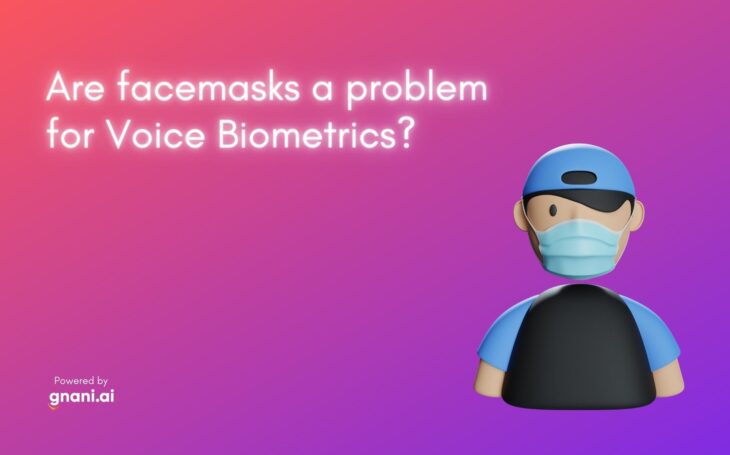
With the outbreak of the COVID-19 pandemic, the use of facemasks has become widespread in an effort to prevent the spread of the virus. However, there is a potential problem with using facemasks in relation to voice biometrics. This is because wearing a facemask can potentially distort the shape of the mouth and affect the way that someone sounds when they speak. This could create problems when trying to verify someone’s identity using their voice, as the biometric system may not be able to recognise them correctly.
There have been some reports of people having difficulty using voice biometrics while wearing a facemask, but it is not clear how widespread this issue is. It is possible that it only affects a small minority of people, or that it only occurs in certain situations (for example, if the person is wearing a particularly tight-fitting facemask).
Ultimately, more research is needed to determine the extent to which facemasks can impact voice biometrics. In the meantime, it is recommended that people who rely on voice biometrics for authentication purposes should avoid wearing facemasks if possible. If it is not possible to avoid wearing a facemask, then it may be worth trying to find a biometric system that is less affected by mouth coverings.
The Problem
There are a few potential problems that could occur when using facemasks with voice biometrics. First, the mask could muffle the unique characteristics of an individual’s voice, making it more difficult for the system to accurately identify them. Additionally, if the mask is not fitted properly, it could create gaps that allow outside noise to enter and interfere with the recording. Finally, if the person wearing the mask speaks too softly, their voice might not be picked up by the microphone.
Despite these potential issues, it is still possible to use voice biometrics with facemasks. If you are using a facemask, we recommend making sure that it fits snugly and does not have any gaps. You should also speak in a clear, loud voice to ensure that your voice is picked up by the microphone. If you have any concerns about using voice biometrics with a facemask, you can always contact our support team for assistance.
Some tips
Tips to use voice biometrics while wearing a facemask:
- Make sure your facemask fits snugly and does not have any gaps while speaking the first time.
- Speak in a clear, loud voice to ensure that your voice is picked up by the microphone.
- If you have any concerns about using voice biometrics with a facemask, you can always contact the support team for assistance.
- When enrolling your voice print, try to remove your facemask so that the system can accurately capture your voice.
- If you need to wear a facemask during authentication, we recommend using a voiceprint that has been enrolled without a facemask.
- Make sure to keep your voiceprint updated so that the system can accurately identify you.
There’s no question that facemasks have become a necessary part of our lives in the wake of the COVID-19 pandemic. But what impact do they have on voice biometrics?
Interestingly, research suggests that facemasks actually improve the accuracy of voice biometrics systems. A study conducted by the University of Maryland found that mask-wearing significantly reduced the error rate of speaker recognition systems. So, if you’re using a voice biometrics system, there’s no need to worry about wearing a facemask affecting its performance. In fact, it may even help to improve its accuracy.
What do you think about this? Have you had any experiences with using voice biometrics while wearing a facemask? Let us know in the comments below.? Let us know in the comments below.




